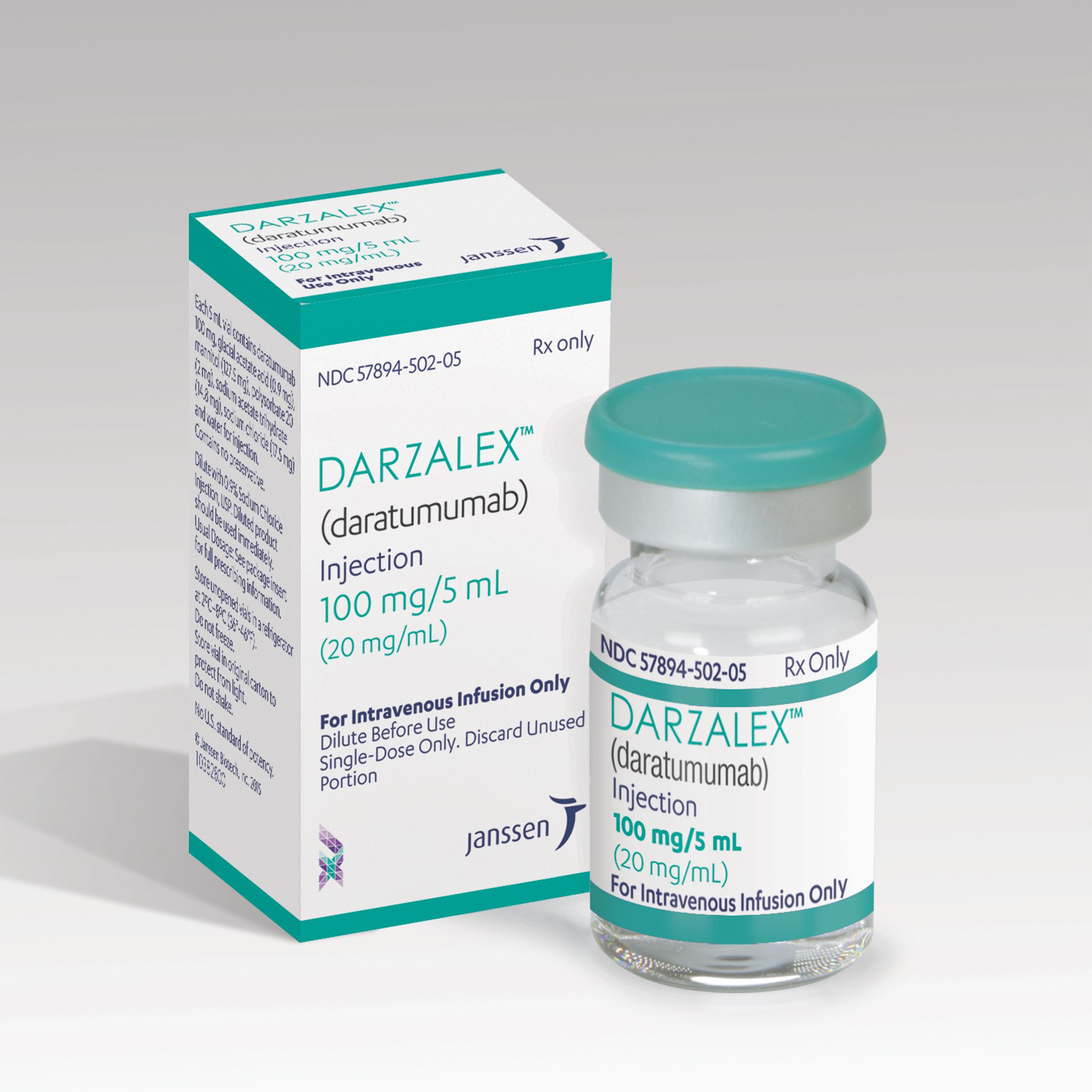Janssen seeks expanded EU use for myeloma drug

Janssen-Cilag has filed to expand use of its Darzalex in Europe to include standard of care regimens in multiple myeloma, a disease where it faces tough competition from rivals from manufacturers including AbbVie/Bristol-Myers Squibb and Celgene.
The Johnson & Johnson unit said it had applied for a variation seeking to broaden the EU marketing authorisation to include treatment of adults with relapsed multiple myeloma who have received at least one prior therapy.
The drug, which was developed by Denmark's Genmab, was designated a Breakthrough Therapy in the US late last month, meaning the US Food and Drug Administration will expedite the development and review process. Janssen filed Darzalex in the new indication in the US last week.
If approved, the filing will allow Darzalex to be used with Celgene's Revlimid immunomodulatory agent (lenalidomide) and dexamethasone, or J&J's proteasome inhibitor Velcade (bortezomib) and dexamethasone.
Darzalex is currently approved by the European Commission for monotherapy of adult patients with relapsed and refractory multiple myeloma, whose prior therapy included a proteasome inhibitor and an immunomodulatory agent, and who have demonstrated disease progression on the last therapy.
The CASTOR and POLLUX phase 3 trials support the latest filing, which combined Darzalex with Velcade and Revlimid respectively. It also contained data from a phase 1 trial combining Darzalex with Celgene's Imnovid (pomalidomide).
GlobalData predicts Darzalex could achieve peak sales of $3.7 billion by 2023, just behind Bristol-Myers Squibb/AbbVie's Empliciti (elotuzumab).
Other rivals hit the market last year - Takeda's Ninlaro (ixazomib) and Novartis' Farydak (panobinastat).
Darzalex is a first-in-class biologic targeting CD38, a surface protein that is highly expressed across multiple myeloma cells, regardless of disease stage.
It induces rapid tumour cell death through programmed cell death and multiple immune-mediated mechanisms of action, including complement-dependent cytotoxicity, antibody-dependent cellular cytotoxicity and antibody-dependent cellular phagocytosis.











